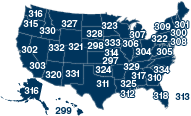On top of this legislative victory for NPMHU members, the labor movement also saw considerable gains when the House passed the Protecting the Right to Organize (PRO) Act, H.R. 842. A strong national economy often coincides with strong union membership, as the workforce takes control of bargaining over pay, benefits, and workplace safety. Upon the passage of the bill, Chairman of the House Education and Labor Committee Bobby Scott (D-VA) commented, “The Protecting the Right to Organize Act makes the most significant upgrades to the [National Labor Relations Act] in 85 years by providing new tools to protect workers from intimidation and retaliation, introducing meaningful penalties for companies that violate workers’ rights, and allowing workers to hold free, fair, and safe union elections.”
The bill strengthens laws for those in the private-sector regarding several related topics: union elections and employee engagement with unions; accountability for violating workers’ rights; and, better reporting from the NLRB.
First and foremost, the PRO Act ensures that workers in right-to-work states can still be represented by unions, allowing workers to enter into contracts with employers and the union to collect dues from the workers they represent. Additionally, those who face retaliation from their union involvement will be protected from loss of work, providing an injunction so workers can return to work while they wait for their case to be resolved. The bill also allows for supportive boycotts and strikes, so unions can show solidarity with their brothers and sisters without the threat of being replaced while striking. If employers violate these rights, workers will be able to seek justice in a court of law if the NLRB fails to act.
Furthermore, the PRO Act expands the penalties employers will face if workers’ right are violated. Under the PRO Act, employers would face fines issued by the NLRB for wrongful termination as well as personal liabilities imposed on directors or other members of corporation leadership who actively violate workers’ rights or fail to take preventative action. The bill will also ensure that employers cannot force employees to waive their right to class-action and collective lawsuits. Employers will also be required to educate their workers on rights under the improved NRLA.
The PRO Act also ensures that employees can take part in union elections. This is first seen in the prohibition of employers interfering with elections and forcing employees to take part in “captive audience” meetings during which workers are forced to hear anti-union propaganda under threat of firing. As this legislation was introduced in the middle of the COVID-19 pandemic, the bill reflects the need to hold elections where employees are not forced to risk their health and wellbeing to vote on union representation. Following a vote in favor of entering collective bargaining, the bill requires first contracts between employers and employees to be conducted in a timely fashion, avoiding recent practices of prolonging the ratification of the first contract and calling upon the NLRB to require mediation for disputes. The PRO Act also addresses who is represented by collective bargaining and dues paid by allowing for unions and employers to voluntarily require fairshare fees, regardless of state laws.
The House passed this bill mostly along party lines, with only five Republicans voting in favor of it and one Democrat voting against it. Within the Senate, the PRO Act faces a difficult path forward as some Democrats seem to be hesitant to support bill and the issue generally is a non-starter for most Republicans. NPMHU members understand the value of union membership, not only for individuals, but also as larger numbers of union members help drive the national economy. The PRO Act is a part of the NPMHU’s legislative agenda, and we will work with our private-sector union brothers and sisters to educate Members of Congress on the value of this legislation.
